Iodine
Iodine is a chemical element with the symbol I and atomic number 53. It is a non-metal and belongs to the halogen group of elements. Iodine is essential for the production of thyroid hormones, which regulate various bodily functions including metabolism and growth.
Properties of Iodine
Iodine is a lustrous, purple-black solid at room temperature. It has a characteristic odor and is slightly soluble in water. When heated, iodine sublimes directly into a purple gas.
Role in Living Organisms
In living organisms, iodine is primarily concentrated in the thyroid gland. The thyroid gland uses iodine to produce hormones such as thyroxine (T4) and triiodothyronine (T3), which are crucial for regulating metabolism, growth, and development.
Deficiency and Health Implications
Iodine deficiency can lead to various health issues, including goiter (enlargement of the thyroid gland), hypothyroidism, and developmental abnormalities. It is particularly crucial for pregnant women to ensure adequate iodine intake to prevent developmental problems in the fetus.
Sources of Iodine
Common dietary sources of iodine include iodized salt, seaweed, seafood, dairy products, and eggs. In regions where iodine-rich foods are scarce, iodine supplementation or iodized salt programs are implemented to prevent iodine deficiency disorders.
Conclusion
Iodine plays a vital role in human health, particularly in the functioning of the thyroid gland and the production of essential hormones. Ensuring an adequate intake of iodine through diet or supplementation is crucial for maintaining overall well-being.
[Iodine] Related Worksheets and Study Guides:
.◂Biology Worksheets and Study Guides High School. Microorganisms I
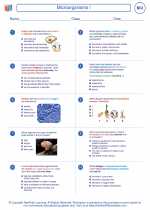
 Worksheet/Answer key
Worksheet/Answer key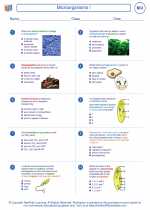
 Worksheet/Answer key
Worksheet/Answer key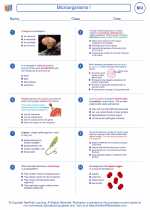
 Worksheet/Answer key
Worksheet/Answer key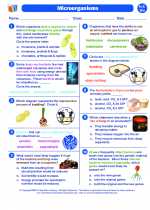
 Vocabulary/Answer key
Vocabulary/Answer key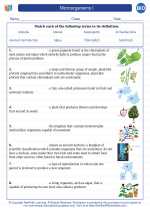
 Vocabulary/Answer key
Vocabulary/Answer key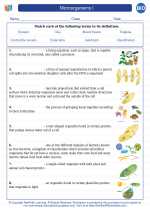
 Vocabulary/Answer key
Vocabulary/Answer key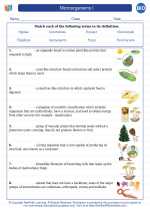
 Vocabulary/Answer key
Vocabulary/Answer key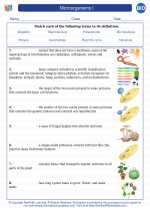
 Vocabulary/Answer key
Vocabulary/Answer key
